These dairy free scones are as delicious as a traditional recipe. There's certainly no need to miss out if you're dairy free or vegan. And dairy free scones are even quicker and easier to make. You just need to mix the dough together with a spoon, no rubbing in required. Plus, the olive oil used in this recipe is a healthy choice.
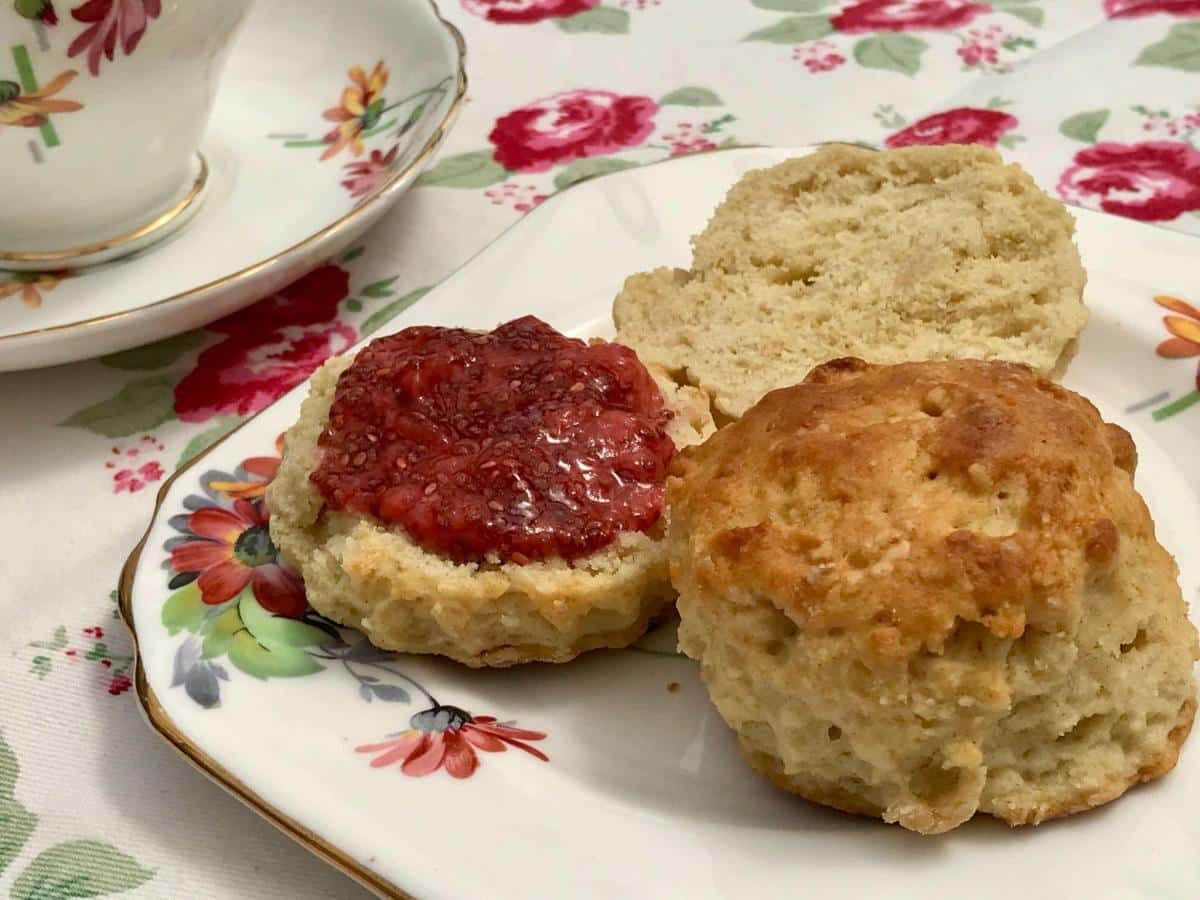
What you'll love about the recipe
- Uses olive oil as a key ingredient. It's low in saturated fat, and less processed than many dairy free baking spreads
- Made with everyday ingredients
- Quick and easy. Using a liquid fat means that there's no messy rubbing in required. And certainly no reason to get out the food processor;)
- Delicious vegan scones that are moist and fluffy - in less than half an hour!
Ingredients
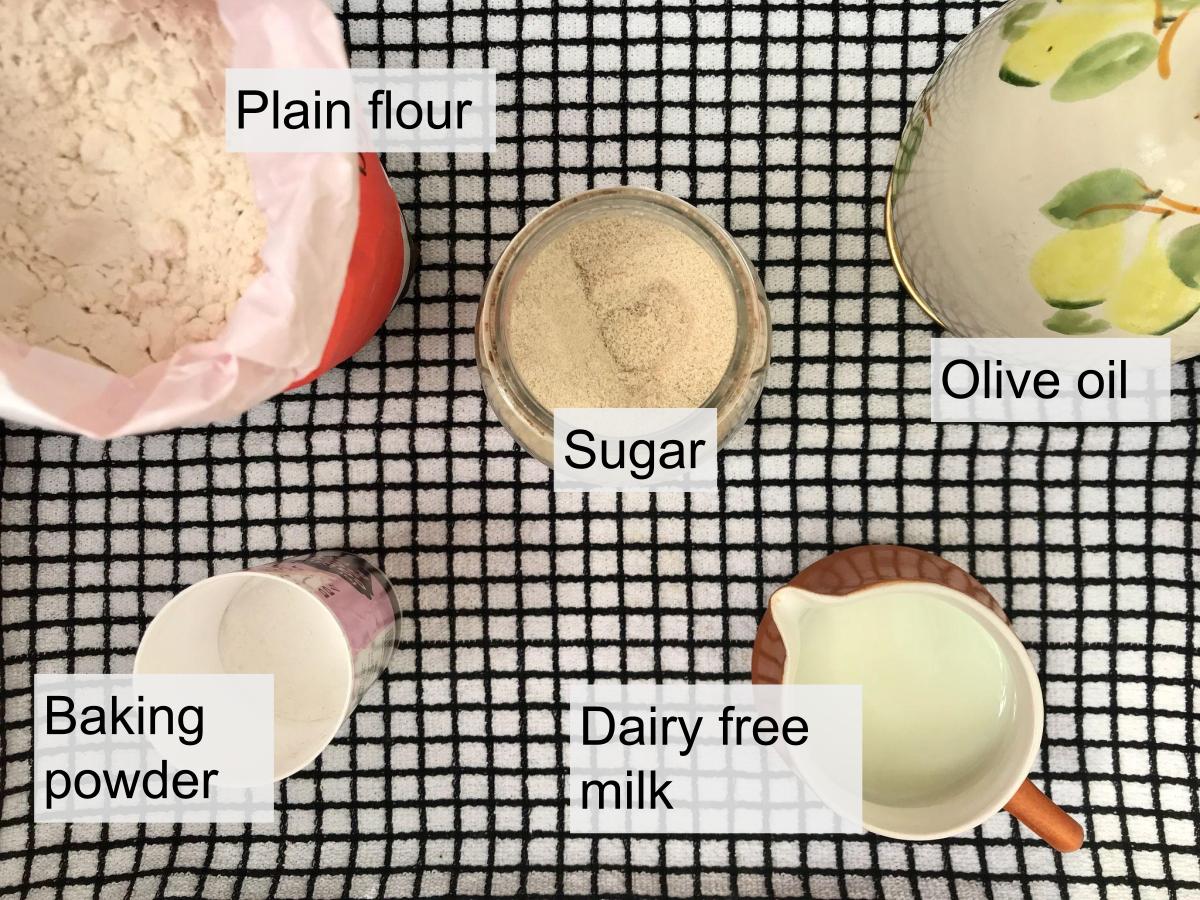
Plain flour and baking powder. I use plain flour with baking powder rather than self raising flour just because it means less bags of flour in the cupboard.
If you'd prefer to use self raising, cut the baking powder down to one teaspoon.
Sugar. There's just one tablespoon of sugar in the recipe to add a touch of sweetness. Of course, toppings such as jam will add further sweetness (even if it's sugar free jam!). Castor sugar is ideal as it'll dissolve easily so there's no grittiness.
Olive oil. In this recipe olive oil takes the place of butter. It's a healthy choice, and gives a good texture to the scones.
Milk. You'll need milk to bring the dough together. Unsweetened plain almond, soy or oat milk all work well. Bear in bear that if you use a stronger tasting replacement such as coconut milk that will affect the flavour of your scones.
Tip: if you're using oat milk, you might also like to try this dairy free porridge or custard with oat milk. You can also freeze leftover oat milk successfully.
Optional ingredients
Feel free to add in optional ingredients such as dried fruit to the recipe. 50 g of sultanas or raisins will make dairy free fruit scones.
How to make dairy free scones
Preheat the oven to 210 degrees (190 fan.) Scones need a hot oven from the moment they start cooking in order to ensure a good rise. Lightly grease a baking sheet.
Add the flour, baking powder and sugar to a bowl. Give it a quick stir to ensure the baking powder is well distributed.
Then make a well in the centre of the flour. Add the oil and milk to the well in the flour.
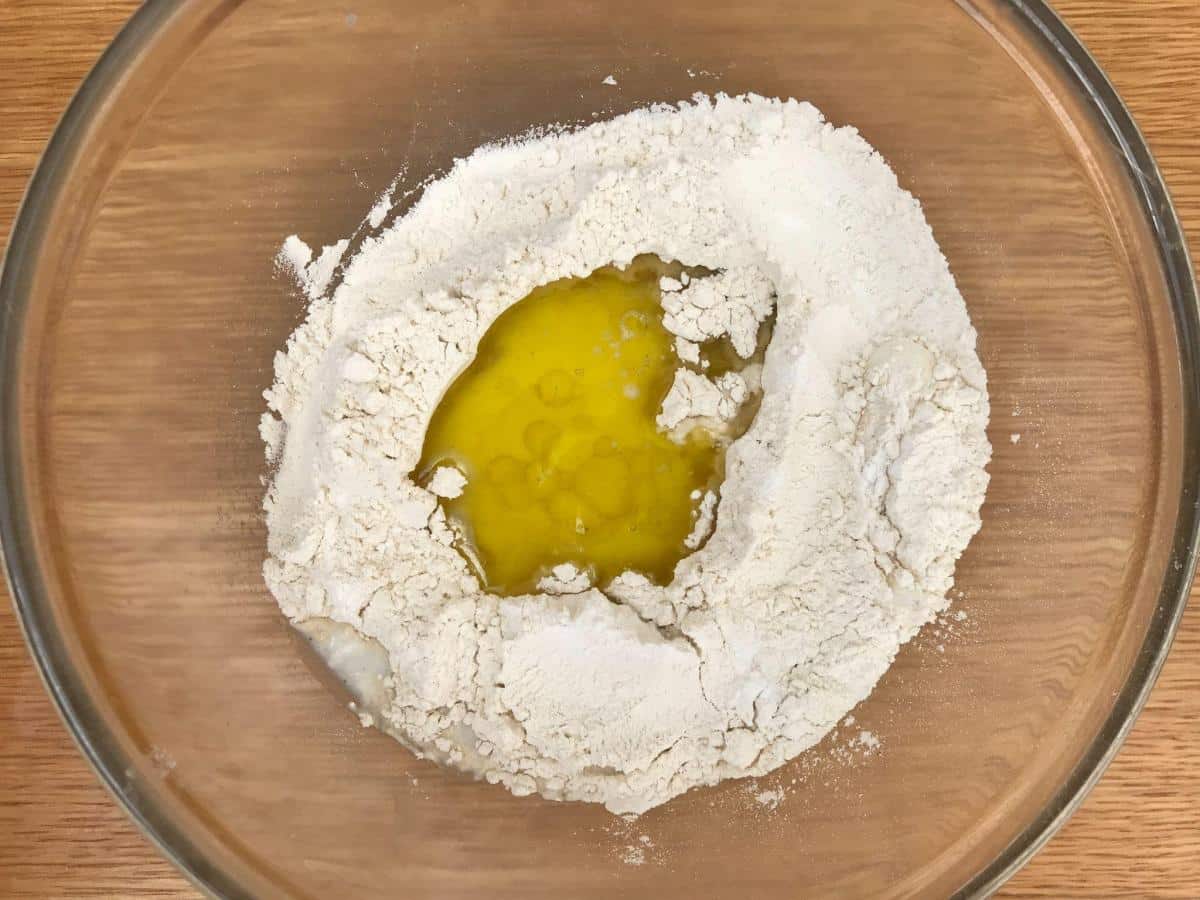
Then start to incorporate the flour from around the edge into the oil, stirring as you go. The dough will start to come together.
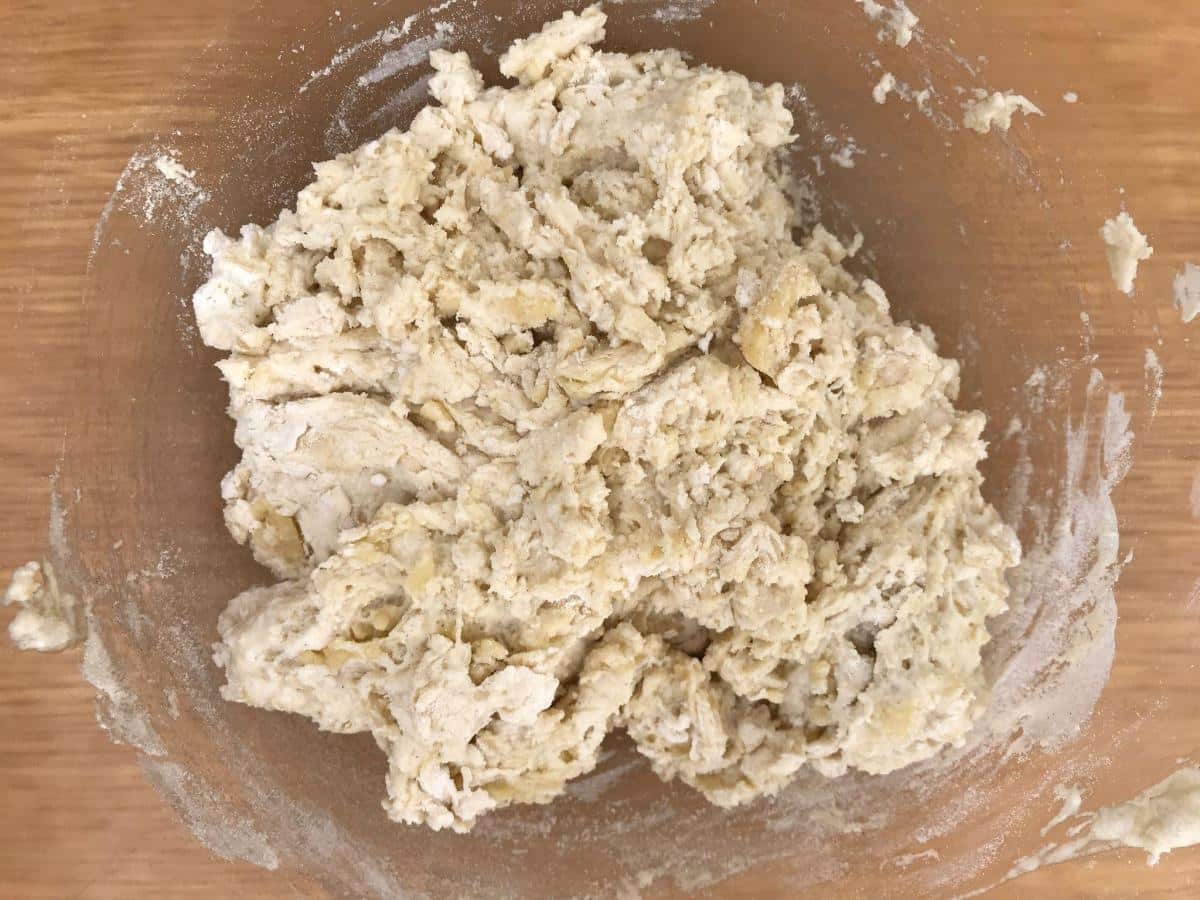
Tip the dough onto a floured pastry board or worktop. Very lightly knead if necessary to ensure it is fully mixed, then bring it together into a ball with your hands.
Flatten the dough with your hands until it is about 2.5cm or an inch thick. The scones will rise, but if you flatten the dough too much, your scones might not be as tall as you want.
If you want super tall scones, make the dough a little thicker.
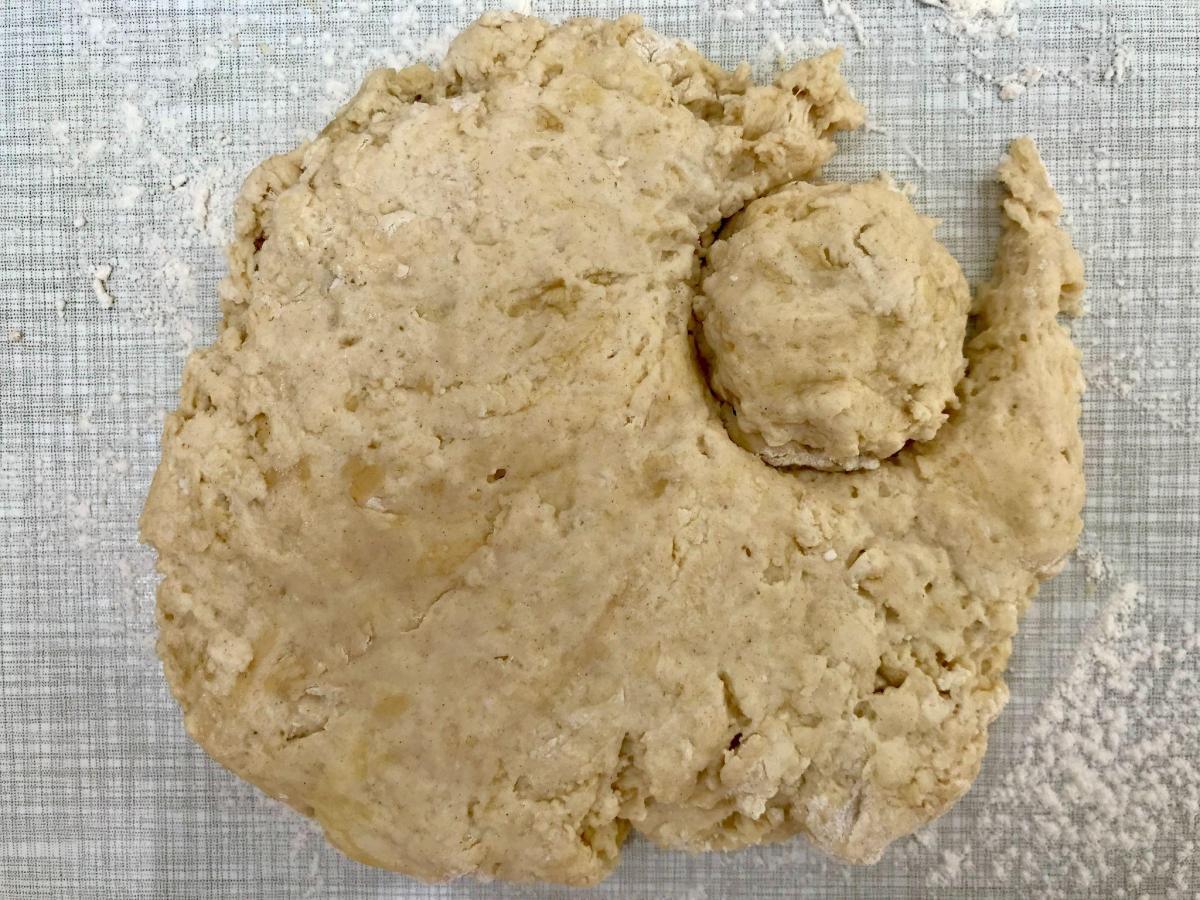
Cut the scones out with a pastry cutter. A 5 cm/ 2 inch cutter should give you 12 scones, but you can make them whatever size you like. Dainty or super sized!
If you prefer, you could cut the dough into triangles. You can re-flatten the dough to use up the remainder when cutting out, but handle it gently.
Transfer to the greased baking sheet. If you want, you can brush the tops of the scones with a little extra milk which will help them to brown well.
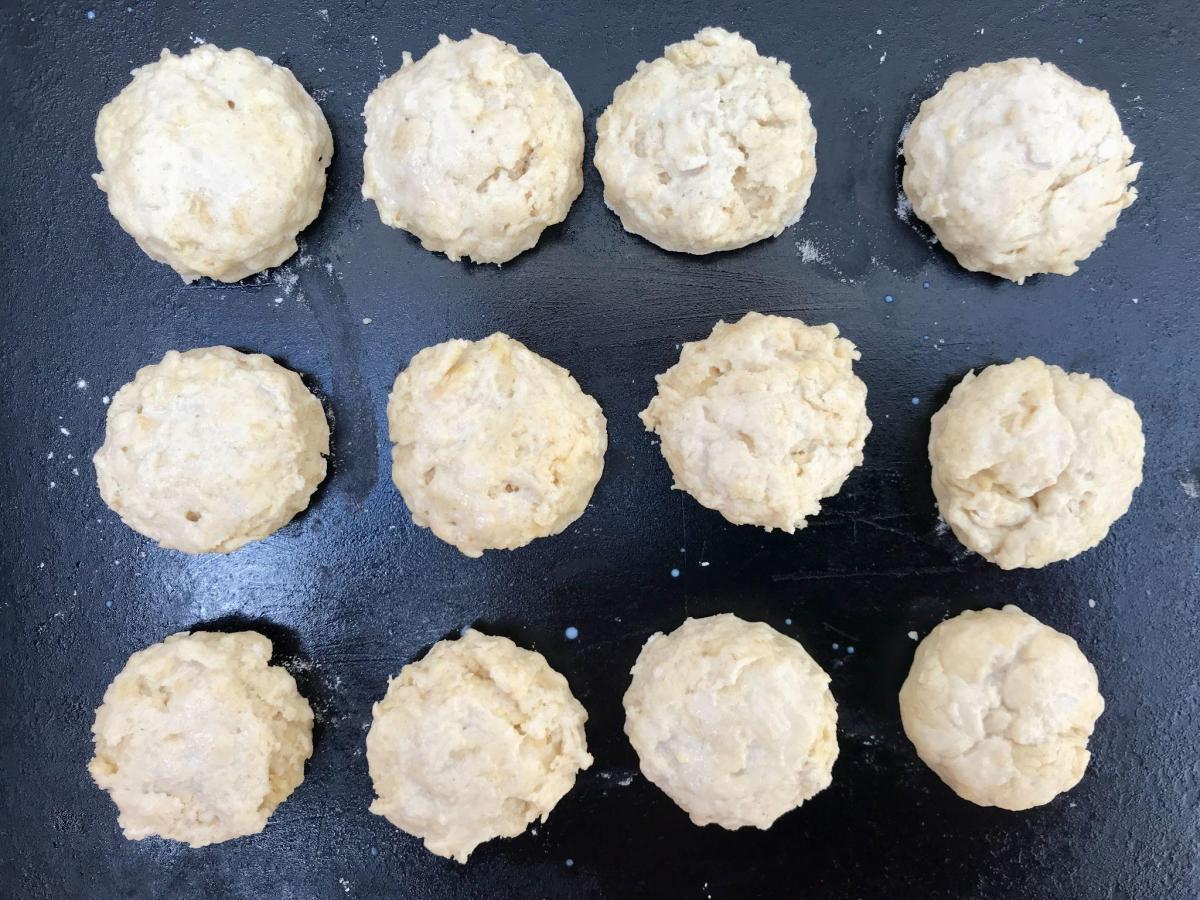
Bake in a preheated oven for 12-15 minutes until golden brown. You might need to turn them partway through to ensure that they brown evenly.
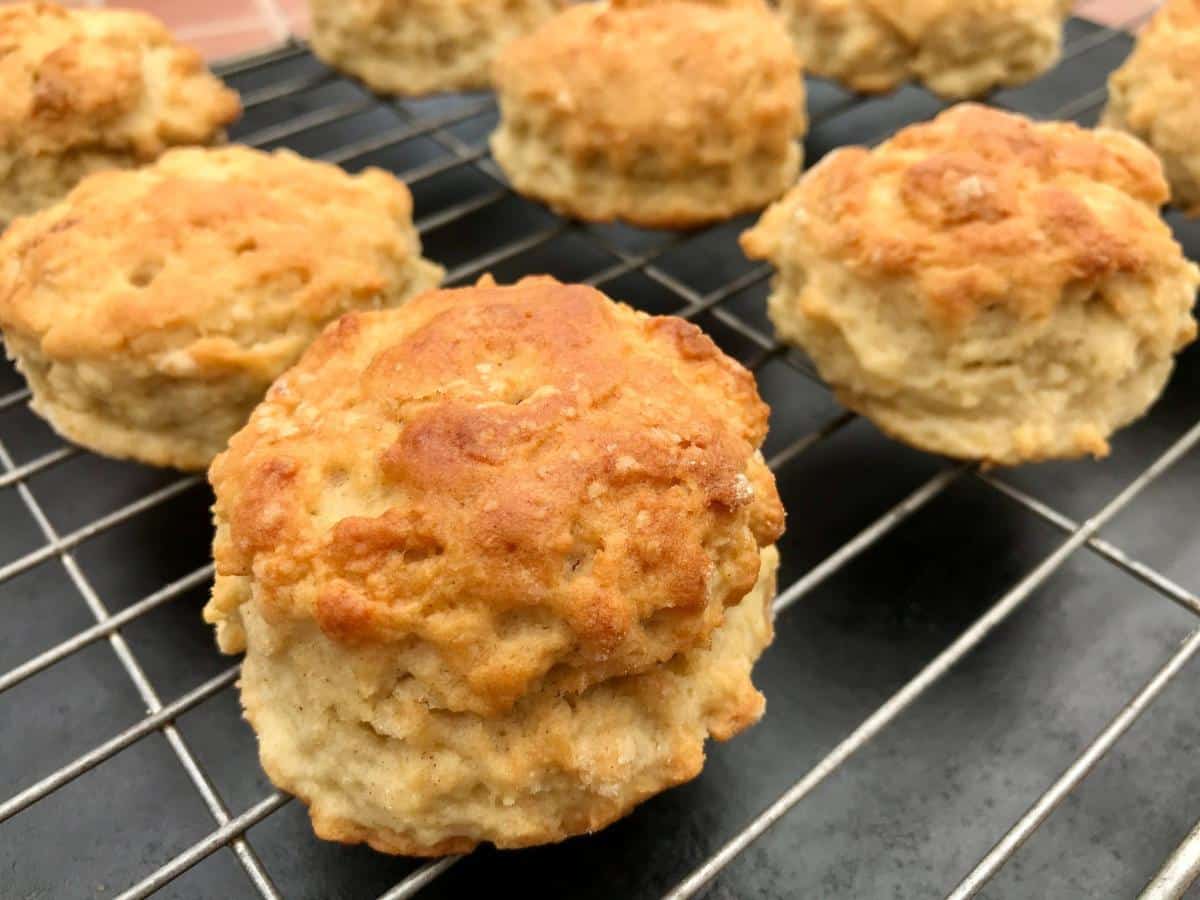
Serving and storage
Scones are best served fresh, and these dairy free scones are no exception. They are delicious when they are still slightly warm from the oven. Add a generous dollop of this 10 minute low sugar jam.
If you are not eating the scones straight away, store them in an airtight container. If you want them to keep for more than a day or two, it's best to freeze them.
Expert tips
- If you don't have a pastry cutter, you can use the rim of a sturdy glass to cut out scones.
- Try not to twist the cutter when cutting out the scones. Just press down firmly and you'll get a neater shape.
- Handle the scone dough gently. If you over handle it, scones can become tough.
- In order to remove any dough from your hands, rub your dry hands together (over the sink!). It's much easier to remove most of the dough this way before you add soap and water. The dough will roll off rather than turning into a sticky mess.
Frequently asked questions
In theory, you could use water instead of milk in a scone recipe. However, milk adds a slightly better colour, flavour and texture.
Some recipes for scones have egg, and some don't. I use an egg in this gluten free scone recipe as it helps to give the scones structure and hold them together. Egg also adds a little richness to the recipe, but too much egg and the scones start to take on the texture of cake.
You can make dairy free scones by substituting the butter for a vegan butter and using a conventional recipe. However, these delicious olive oil scones are even easier to make, as there's no rubbing in. And olive oil is a healthy replacement for butter.
Other dairy free recipes
You might also like to try these foolproof dairy free Yorkshire puddings.
Have you tried this recipe? Please leave a rating and/or comment at the bottom of the page. Your feedback and questions are much appreciated.
You can also follow me on Pinterest and Facebook. Or subscribe to the newsletter to receive delicious healthy recipes straight to your inbox.
Recipe
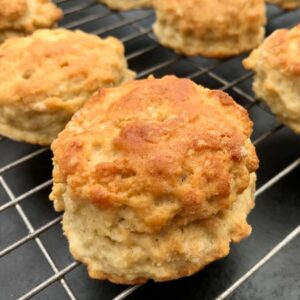
Dairy Free Scones
Equipment
- mixing bowl and spoon
- baking sheet
- kitchen scales
- pastry cutter or use a sturdy glass
Ingredients
- 200 g plain flour
- 3 teaspoon baking powder
- 1 tablespoon castor sugar
- 40 ml olive oil
- 120 ml plant based milk
Instructions
- Preheat the oven to 210 degrees (190 fan). Lightly grease a baking tray.
- Add the flour, sugar and baking powder to a bowl and stir to mix. Make a deep well in the centre.
- Add the olive oil and milk to the centre of the flour. Gently stir to incorporate the flour into the oil mix. The dough will start to come together easily.
- Tip the dough onto a floured worktop or pastry board. Using your hands, gently form the mixture into a ball and ensure all the ingredients are well mixed. Flatten into a circle about 2.5 cm (1 inch) thick.
- Using a pastry cutter, cut out the scones. Try not to twist the cutter as you'll distort the shape. You can re-roll the dough once or twice, but be gentle otherwise the scones will be tough.
- If desired, brush the tops of the scones with a little extra milk which will help them to turn a lovely golden brown.
- Transfer to the baking sheet and bake in a preheated oven for 12-15 minutes. If necessary, turn partway to ensure that they brown easily.
Notes
Nutrition
Serving size is 2 small scones
Please note nutritional information is per serving and is provided for guidance only.

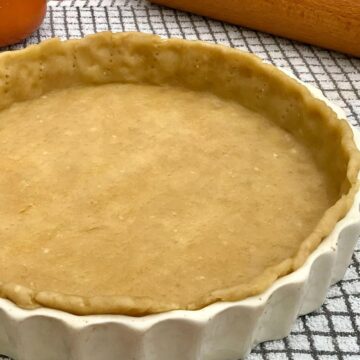
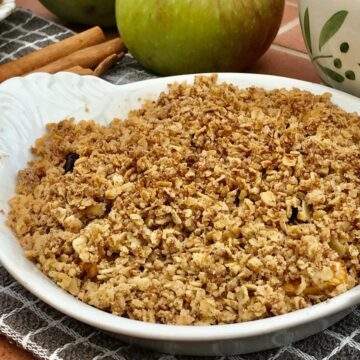
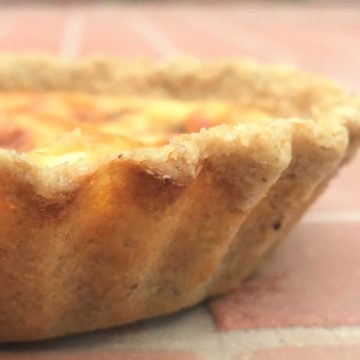
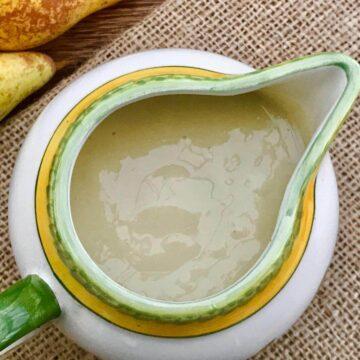

Tanya
I used this recipe for my son who has multiple allergies, I swapped the flour for gluten free and they turned out beautifully!
Wendy Faulkner
Hi, thanks for your comment. I'm glad to hear they worked as well with GF flour, that's really helpful to know:)
Wendy
I think I prefer these to my normal scones, they have a lovely texture, and so easy to make thanks.